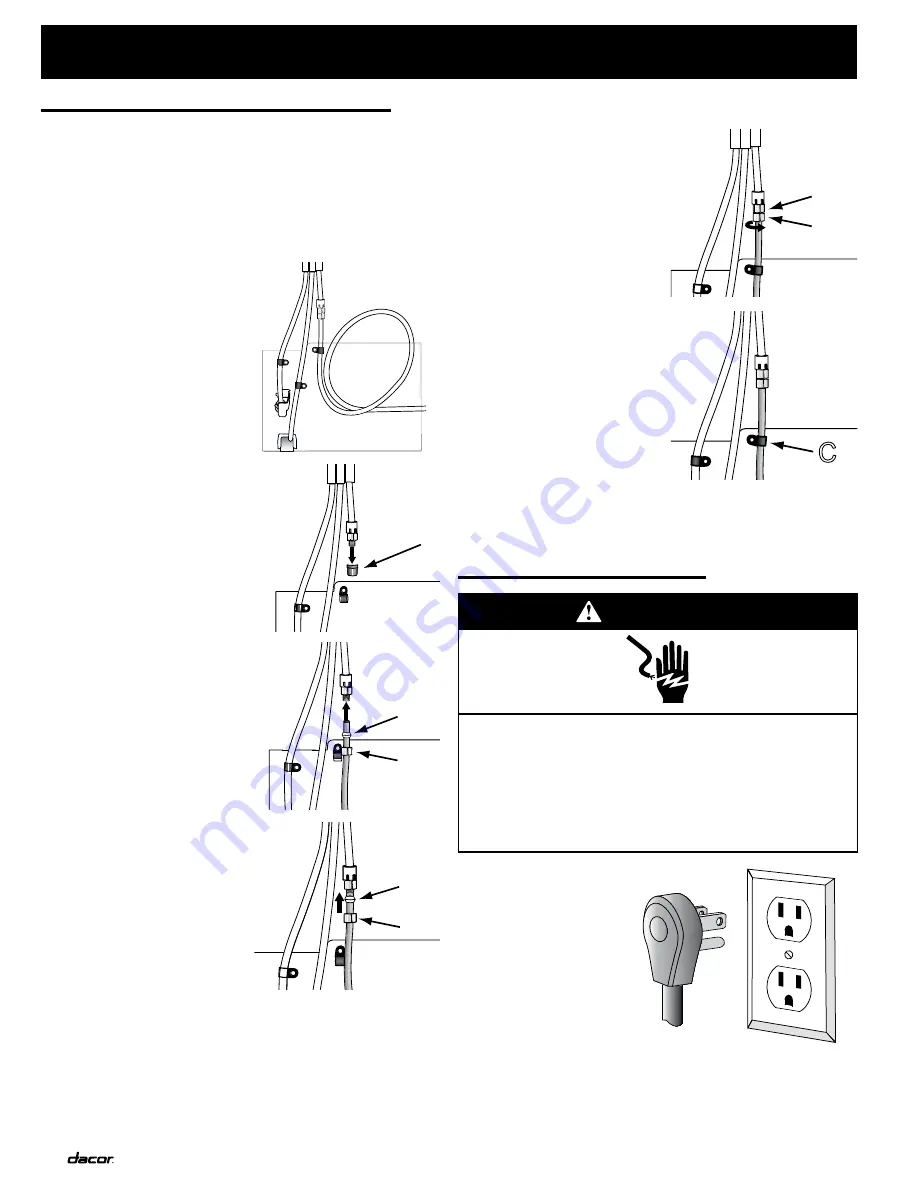
6
C
onneCTing
The
w
aTeR
s
uPPly
Materials Needed:
1⁄4” outer diameter flexible copper tubing
•
Shut-off valve (requires a 1⁄4” hole to be drilled into water
•
supply line before valve attachment)
Adjustable wrench
•
1⁄4” hex nut driver
•
1. Unplug the refrigerator from the
electrical outlet.
2. Create service loop with copper
tubing (minimum 2’ diameter).
Avoid kinks in the copper tubing
when bending it into a service
loop. Do not use plastic tubing.
3. Remove the plastic cap from
water valve inlet port.
4. Place the brass nut (A) and
sleeve (B) on the end of the
copper tube as illustrated.
Reminder
: Do not use an old
sleeve. The nut and sleeve are
provided in the use and care
packet.
5. Place the end of the copper
tubing into the water valve inlet
port. Shape the tubing slightly.
Do not kink the tubing so that it
feeds straight into the inlet port.
i
nsTallaTion
i
nsTRuCTions
6. Slide the brass nut over the
sleeve and screw it into the inlet
port.
7. Place an adjustable wrench
on the nut (1) attached it to
the plastic waterline. Maintain
position.
8. Using a second adjustable
wrench, turn the lower nut (2)
counterclockwise and fully
tighten it while holding the upper
nut in place. Do not overtighten.
9. Pull on the tubing to confirm the
connection is secure. Connect
the tubing to the frame with the
water tubing clamp (C).
10. Turn on the water supply.
Check for leaks and correct if
necessary. Continue to observe
the water supply connection
for two to three hours prior to
moving the refrigerator to its permanent location. Monitor the
water connection for 24 hours. Correct leaks if necessary.
P
lug
in
R
efRigeRaToR
Plug the refrigerator into a
grounded three prong outlet.
NotE:
Allow 24 hours to
produce the first batch
of ice. Discard the first
three batches of ice
produced. Allow three days
to completely fill the ice
container.
A
B
A
B
1
2
C
1
2
C
WARNING
Electric Shock hazard
Plug the refrigerator into a grounded 3-prong outlet.
Do not remove ground prong.
Do not use an adapter.
Do not use and extension cord.
Failure to follow these instructions can result in death, fire,
or electrical shock.









































